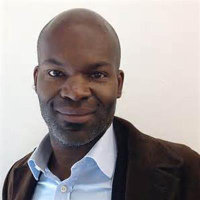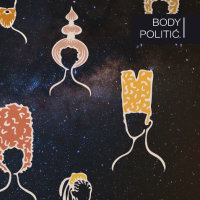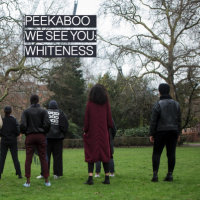Keynote Sessions will be taking place in the Collective Room
6 July 10:00 am: Dr. David Dibosa

David Dibosa trained as a curator after receiving his first degree from Girton College, University of Cambridge. He was awarded his PhD in Art History from Goldsmiths College, University of London. During the 1990s, he curated public art projects. He is currently Course Leader for MA Curating and Collections at Chelsea College of Arts. He is also a Researcher in University of the Arts London's Research Centre for Transnational Art, Identity and Nation (TrAIN).
Dr. David Dibosa’s research interests centre on exhibitionary practice, collections and museums. Since being awarded his PhD from Goldsmiths for a thesis on art, shame and commemoration, David’s work has addressed the ways in which exhibitions act as focal points for social practices. The exhibition as a site of mourning and commemoration remained at the heart of David’s early work with essays such as, 'Exhibitions of Mourning' (2003) published in German translation in the book Visual Culture: Body, Space, Media (Boehlau, 2003).
Latterly, David’s work has addressed the ways in which museum exhibitions and displays set the ground for the staging of national identity. The co-authored essay, ‘Cultural diversity: politics, policy and practices’ published in Museums, Equality and Social Justice (Routledge, 2012) addressed questions of national identity and culture. The most recent work, the co-authored book, Post-Critical Museology (Routledge, 2013) has looked at Tate Britain’s role in the formation of contemporary British culture.
Future projects will continue to address the function of exhibitions, collections and display.
6 July 3:00 pm: Prof. Dilys Williams

What has fashion education got to do with re-orienting ourselves through our interdependencies in the world and recognising ourselves as co-inquirers, contributors and recipients?
Dilys Williams is the Founder and Director of Centre for Sustainable Fashion (CSF), and Professor of Fashion Design for Sustainability. Dilys’ research and teaching practice draws on long-held design practices that connect fashion’s relational ecological, social, economic and cultural dimensions. Engaging participatory and transformation design practices, she seeks ways in which the activities, meanings and matter of fashion can contribute to a thriving interdependence of life. Dilys work contributes to and shapes the field of Fashion Design for Sustainability and its lived practices through publications in academic journals, exhibitions, knowledge exchange partnerships, course design and public events. Prior to establishing CSF, Dilys’ experience includes designing Katharine Hamnett Womenswear and the Liberty Collection as well as projects in Sri Lanka, Vietnam, Turkey, South Africa and India.
Twitter:@sustfash
7 July 10:00 am: Aisha Richards & Terry Finnigan "Critical Friendship"


This conversation will share some live and current issues for Aisha and Terry as practitioners who cultivate radical honesty, critical friendship, and transformational, rather than transactional, antiracism practices. How they have navigated the institution and milestones on this journey will be discussed, including a critique of white allyship, white voyeurism and ‘trauma porn’ moving to a place of solidarity, as well as what sustains their friendship as colleagues, through pain into unity. They argue that trust and belonging are overused, and the long term work of critical discussion demands humility, vulnerability and radical empathy.
"Empathy is commonly viewed as putting yourself in someone else’s shoes and imagining how you would feel. That could > be seen as a start, but that is little more than role-playing, and it is not enough in the ruptured world we live in.
Radical empathy, on the other hand, means putting in the work to educate oneself and to listen with a humble heart to understand another's experience from their perspective, not as we imagine we would feel.
Radical empathy is not about you and what you think you would do in a situation you have never been in and perhaps never will. It is the kindred connection from a place of deep knowing that opens your spirit to the pain of another as they perceive it."
(Wilkerson, 2020)
Further Background: Shades of Noir, Do You Remember
7 July 3:00 pm: Plenary session, Janine Francois & David Cross "Racial and Climate Justice"

David Cross is an artist and Reader at UAL. His research, practice and teaching engage with the social-ecological crisis in relation to visual culture. Recognizing the conflict between his internationalism and environmentalism, he stopped using jet travel in 2005. In 2012, following the Artist Placement Group, he designated his role at UAL as an artist’s placement, proposing that UAL switch to an ethical bank. With students, David campaigned for UAL to divest £3.9 million from fossil fuels, which in 2015 it pledged to do. Since 2019, David has advocated that UAL integrates decarbonization and decolonisation as a start towards regenerative ecology and restorative social justice.

Janine Francois is a Black-Feminist cultural producer, curator and writer. Her practices centre women/femmes of colour by establishing ‘safe(r)’ spaces as sites of resistance, disruption and co-production. She is also a doctoral student researching, ‘if Tate can be a ‘safe(r) space’ to discuss race and cultural difference within a teaching and learning context,’ at Tate and University of Bedfordshire. Janine is interested in (re)production of dominance, ethics of care and the cultural politics of emotions within cultural institutions.
Further Background: Recording of previous conversation from UAL Research Week 2021 (Starts approx.23’00 minutes in)
